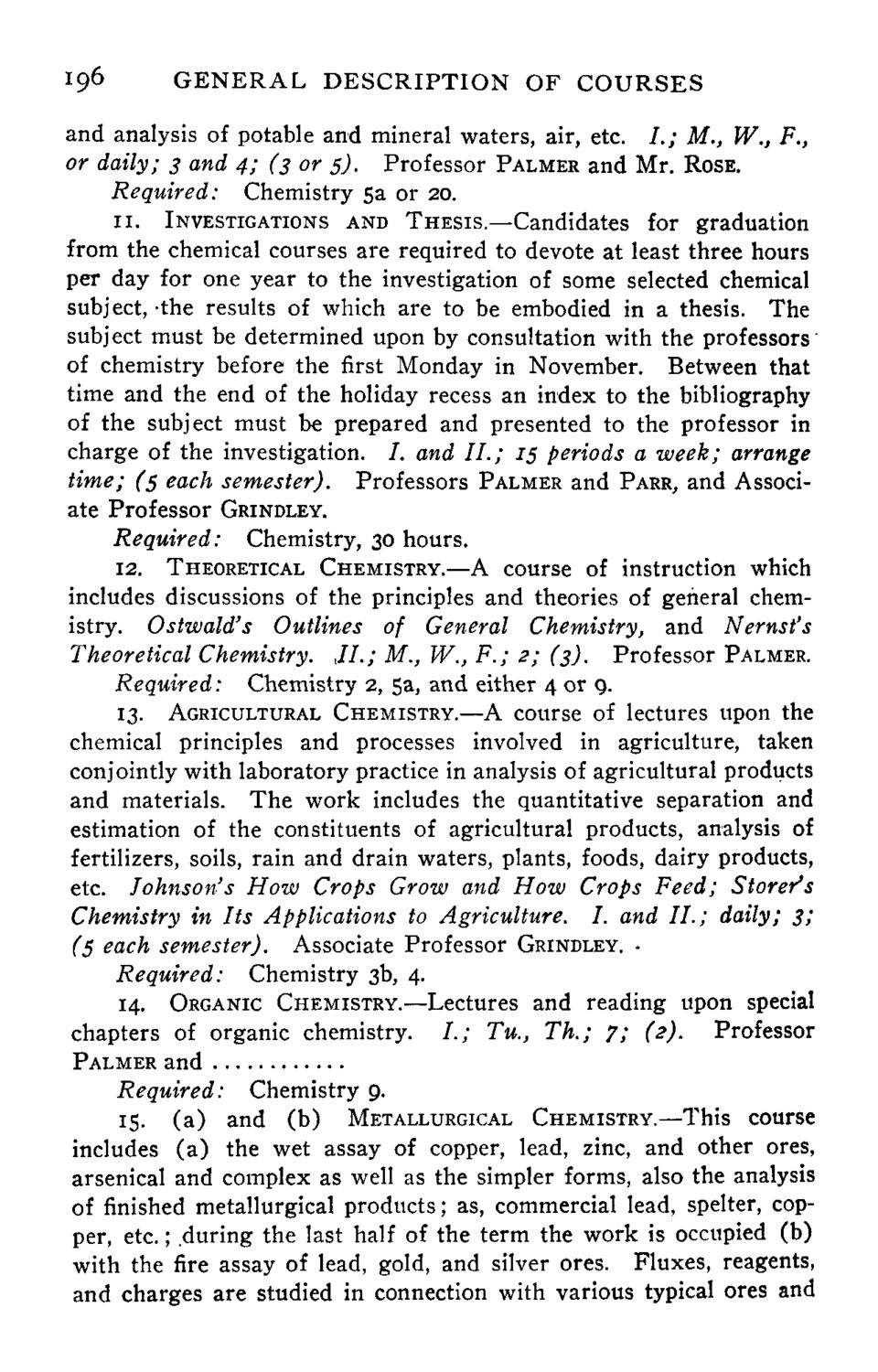| |
| |
Caption: Course Catalog - 1899-1900
This is a reduced-resolution page image for fast online browsing.

EXTRACTED TEXT FROM PAGE:
19 6 GENERAL DESCRIPTION OF COURSES Professor PALMER and Mr. ROSE. and analysis of potable and mineral waters, air, etc. / . ; M., W., F., or daily; 3 and 4; (3 or 5). Required: 11. Chemistry 5a or 20. INVESTIGATIONS AND THESIS.—Candidates for graduation from the chemical courses are required to devote at least three hours per day for one year to the investigation of some selected chemical subject, -the results of which are to be embodied in a thesis. The subject must be determined upon by consultation with the professors of chemistry before the first Monday in November. Between that time and the end of the holiday recess an index to the bibliography of the subject must be prepared and presented to the professor in charge of the investigation. /. and II.; 15 periods a week; arrange time; (5 each semester). Professors PALMER and PARR, and Associate Professor GRINDLEY. Required: Chemistry, 30 hours. 12. THEORETICAL CHEMISTRY.—A course of instruction which includes discussions of the principles and theories of general chemistry. Ostwald's Outlines of General Chemistry, and Nernst's Theoretical Chemistry. ,11.; M., W., F.; 2; (3). Professor PALMER. Required: Chemistry 2, 5a, and either 4 or g. 13. AGRICULTURAL CHEMISTRY.—A course of lectures upon the chemical principles and processes involved in agriculture, taken conjointly with laboratory practice in analysis of agricultural products and materials. The work includes the quantitative separation and estimation of the constituents of agricultural products, analysis of fertilizers, soils, rain and drain waters, plants, foods, dairy products, etc. Johnson's How Crops Grow and How Crops Feed; Storer's Chemistry in Its Applications to Agriculture. I. and II.; daily; 3; (5 each semester). Associate Professor GRINDLEY. Required: Chemistry 3b, 4. 14. ORGANIC CHEMISTRY.—Lectures and reading upon special chapters of organic chemistry. / . ; Tu., Th.; 7; (2). Professor PALMER and Required: 15. (a) Chemistry 9. and (b) METALLURGICAL CHEMISTRY.—This course includes (a) the wet assay of copper, lead, zinc, and other ores, arsenical and complex as well as the simpler forms, also the analysis of finished metallurgical products; as, commercial lead, spelter, copper, etc.; during the last half of the term the work is occupied (b) with the fire assay of lead, gold, and silver ores. Fluxes, reagents, and charges are studied in connection with various typical ores and
| |